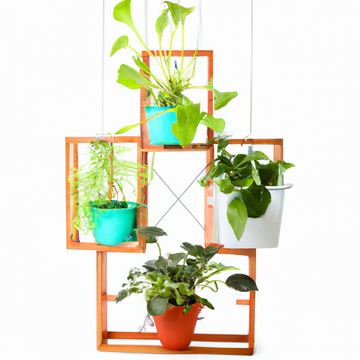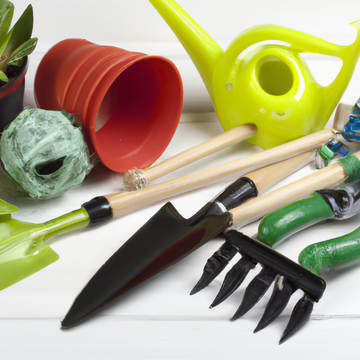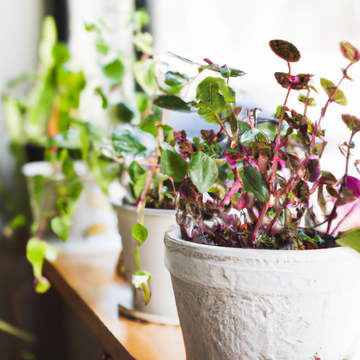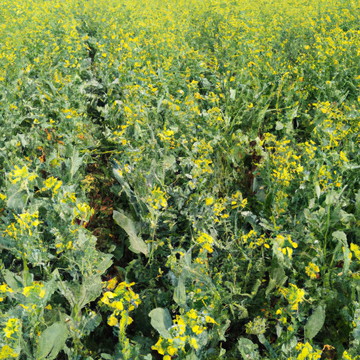Organic Gardening and Organic Fertilizer: Tips and Techniques for Growing Chemical-Free Plants
by GOLDDUST- Rethink&Revive on Apr 13, 2023
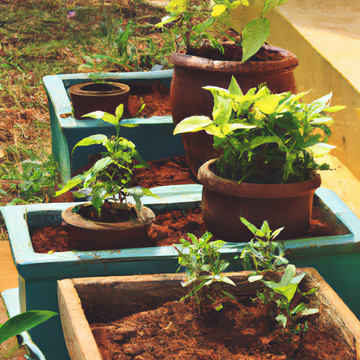
Are you tired of buying chemical-laden produce from the grocery store? Why not try growing your own organic garden through organic fertilizer? Not only will it provide fresh and healthy fruits and veggies for your family, but it also benefits the environment. Organic gardening is a sustainable method of farming that focuses on using natural methods to grow plants without harmful chemicals. In this blog post, we'll share tips and techniques for growing chemical-free plants in your very own backyard. Plus, we'll introduce you to some helpful resources for all things organic gardening. Let's get started!
What is organic gardening?
Organic gardening is a method of growing plants without using synthetic fertilizers, pesticides, and other harmful chemicals. Instead, it relies on natural methods and organic fertilizer to nourish the soil and control pests. This means that organic gardeners use compost, manure, and other organic matter to enrich their soil.
One of the key principles of organic gardening is biodiversity. Organic gardeners strive to create a balanced ecosystem in their gardens by encouraging beneficial insects like ladybugs and bees while also using companion planting techniques.
Another important aspect of organic gardening is crop rotation. By rotating crops each season or year, you can help prevent soil-borne diseases from building up in your garden beds.
Organic gardening isn't just about avoiding harmful chemicals – it's also about promoting sustainability. By reducing our reliance on fossil fuels for transportation and chemical production, we can reduce our carbon footprint and contribute to a healthier planet.
So, whether you're an experienced gardener or just starting out, there are many benefits to embracing this natural approach to farming!
The benefits of organic gardening
Organic gardening has become increasingly popular in recent years as people have grown more concerned about the quality of their food and its impact on the environment. Here are some of the benefits:
- Healthier soil: Organic gardening methods focus on building healthy soil through composting, crop rotation, and natural amendments like mustard cake fertilizer. This results in healthier plants that are better able to resist disease and pests.
- Chemical-free: Organic gardening eliminates the need for synthetic pesticides and fertilizers that can harm both humans and wildlife alike. Instead, organic gardeners use natural pest control methods like companion planting or physical barriers.
- Better taste: Many people who grow organically report that their fruits and vegetables taste better than those grown conventionally with chemical inputs. This may be due to higher levels of nutrients in organically grown produce.
- Environmental benefits: Organic gardening practices promote biodiversity by encouraging a variety of plant species to thrive alongside each other while minimizing damage to local ecosystems caused by runoff from chemical inputs.
- Cost-effective: While it may require some initial investment in composting equipment or natural fertilizers like fish emulsion or bone meal, many organic gardeners find that they save money over time by not having to purchase synthetic chemicals every season.
Organic gardening is a sustainable way to grow healthy food while protecting our planet's health for future generations!
Tips and techniques for growing chemical-free plants
Growing chemical-free plants is not only beneficial for the environment but also ensures that you have healthy and nutritious produce. Here are some tips and techniques to help you grow chemical-free plants.
Firstly, choose the right location for your garden. Look for a spot that receives ample sunlight and has well-draining soil. Avoid areas where there is water stagnation as it can lead to root rot.
Next, use organic fertilizers such as mustard cake fertilizer, compost or manure instead of chemical fertilizers. Organic fertilizers provide essential nutrients to the soil without harming the environment or killing beneficial organisms in the soil.
Mulching is an effective technique used in organic gardening to keep weeds at bay while retaining moisture in the soil. Use natural mulch like straw, leaves or grass clippings around your plants.
Companion planting involves planting different crops together so they support each other's growth while repelling pests naturally. For example, marigolds planted alongside tomatoes will deter harmful insects from attacking them.
Handpick pests instead of using pesticides which may harm beneficial insects as well. You can also introduce natural predators like ladybugs into your garden to control pest populations effectively.
By following these simple tips and techniques, you can grow chemical-free plants successfully while enjoying fresh and healthy produce straight from your garden!
Conclusion
Organic gardening is a great way to grow chemical-free plants and promote sustainability. By using organ fertilizers like mustard cake fertilizer and other organic materials, you can provide your plants with the nutrients they need without harming the environment.
Remember to start small and experiment with different techniques until you find what works best for your garden. Take advantage of resources like online communities, local gardening groups, and books on organic gardening to expand your knowledge.
By practicing organic gardening, you are not only helping the environment but also promoting healthier living for yourself and those around you. So go ahead and give it a try – who knows, one day you may even have your own thriving vegetable garden!

